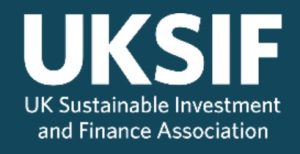Bioeconomy Policy and Practice
The World Economic Forum (WEF) releases a report on bioeconomy policy and practice, aimed at summarizing the development of the global bioeconomy industry and providing recommendations.
The World Economic Forum believes that over 50 jurisdictions worldwide have issued national strategies for bioeconomy, but how to implement bioeconomy from a technical level to a market level is a key concern for stakeholders.
Related Post: G20 Bioeconomy Initiative Releases Ten High-level Principles
Bioeconomy Development and Challenges
Bioeconomy is a bridge between economic growth and environmental protection, providing sustainable industrial alternatives. Bioeconomy involves multiple fields such as healthcare, energy, manufacturing, agriculture, etc. Its commercial development will reshape the existing resource consuming economic system, promote circular economy and sustainable development, reduce the impact of climate change, and improve economic resilience.
Although bioeconomy has become a national strategy in multiple jurisdictions, there are still certain challenges in its practice. The driving force of most bioeconomy comes from science and technology, and its market feasibility has not been given priority consideration. The commercialization of many bioeconomy requires high time and capital costs, thus requiring feasible policy support.
Introduction to Bioeconomy Policy Framework
The World Economic Forum develops a bioeconomy policy framework based on existing challenges in bioeconomy development, which includes fourteen recommendations in four categories:
Regulation
- Use a commercial biotechnology innovation experimental platform: Bioeconomy projects need to verify their safety and functionality, and the testing platform provides them with infrastructure support to facilitate their evaluation and reduce risks.
- Simplify regulatory pathways: Technological progress often outpaces policymaking, simplifying bioeconomy regulation and speeding up approval processes can reduce unnecessary delays and help with bioeconomy innovation.
- Invite technical experts to participate in policymaking: Invite technical experts in regulatory policymaking can improve regulatory efficiency and maintain scientific. Technical experts are an important resource for regulatory authorities.
- Improve policy transparency: Transparent regulatory processes can establish trust between regulatory agencies and stakeholders.
Incentives
- Provide tax reduction and exemption for enterprises: Provide tax reduction and exemption for bioeconomy enterprises, reduce their early operating costs, and promote bioeconomy growth.
- Provide consumer subsidies: Provide financial subsidies to consumers to expand the market size, thereby incentivizing enterprises to provide bioeconomy products.
- Support biological innovation testing and large-scale projects: Provide financial support for large-scale bioeconomy projects to accelerate the commercialization process.
Financing
- Promote blended financing: Adopt blended financing methods to reduce the risks of private investors and ensure that private funds are invested in the bioeconomy field.
- Provide early funding support: Provide more funding support in the early stages of bioeconomy projects to enable them to reach the breakeven stage as soon as possible.
- Provide flexible government funding: Provide flexible financial support based on the development of innovative projects.
- Increase infrastructure funding: Increase investment in biological innovation infrastructure to reduce operating costs for enterprises.
Education
- Establish bioeconomy education programs: Cultivate talents related to bioeconomy and ensure that the supply of talents meets market demand.
- Learn about biological regulation knowledge: Provide bioeconomy training for policy makers to increase professional knowledge and experience.
- Invest in innovation ecological network: Establish an ecosystem of regulatory agencies, enterprises, research institutions, and investors to support large-scale commercial innovation.
Reference:
From Policy to Practice: Actionable Recommendations for a Commercial Bioeconomy





